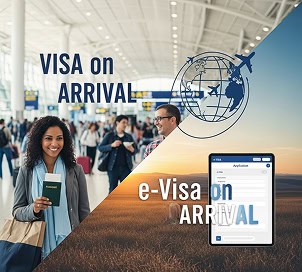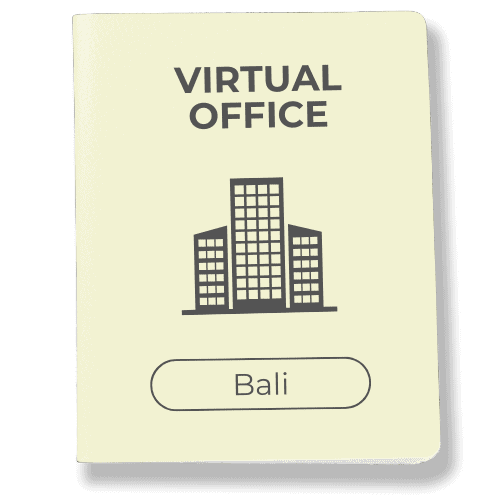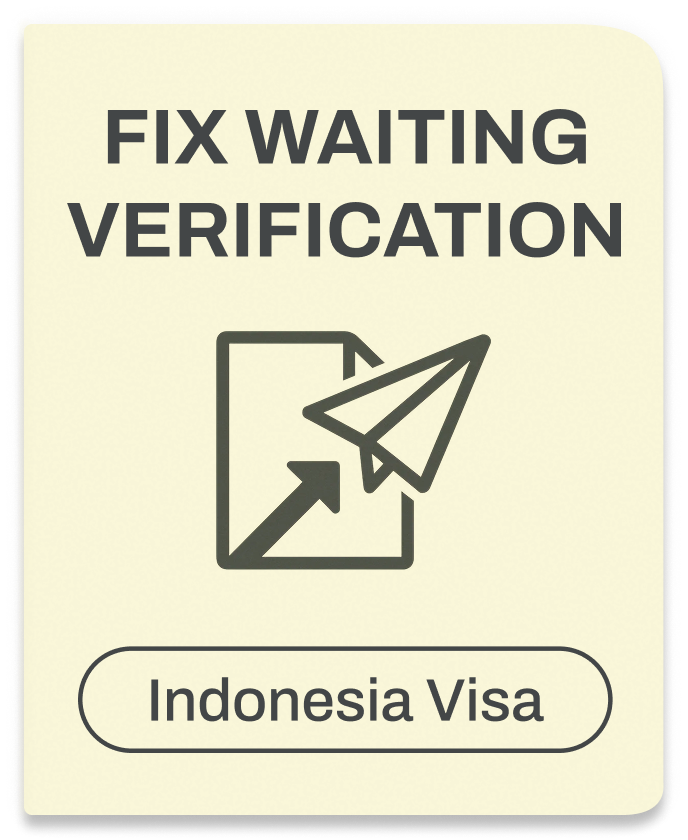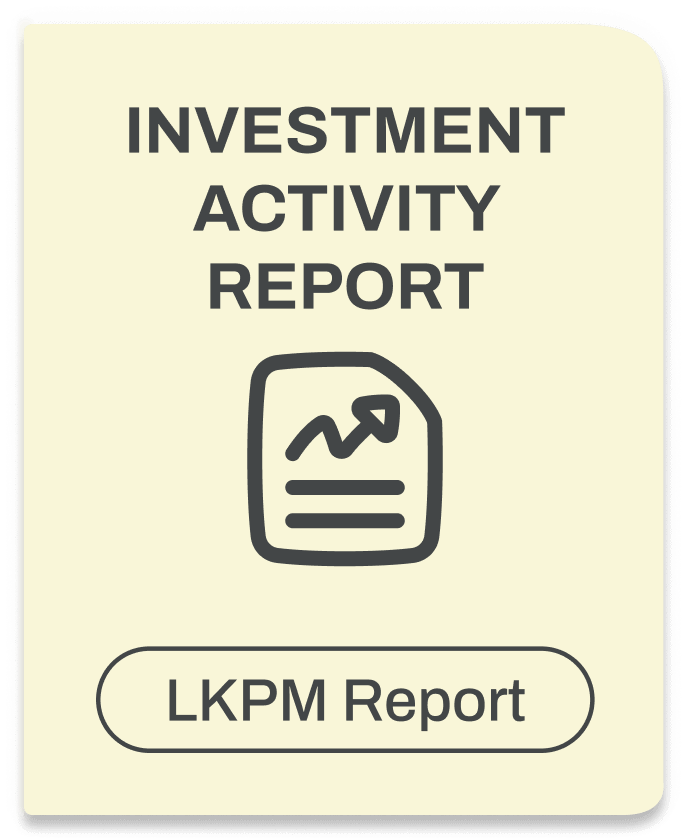Before You Book: Entry and Exit Requirements Checklist
Before you book your international flights, make sure you meet these basic requirements. Missing even one item can lead to denied entry at the international airport:- Valid passport: At least 6 months’ validity from your entry date and a minimum of 2 blank pages
- Undamaged passport: Even minor tears or water damage cause denied entry. Replace damaged passports before you travel
- Yellow fever certificate: Required only if arriving from risk countries; Indonesian authorities check this at the international airport
- Cash declaration awareness: You must declare amounts over IDR 100,000,000 (roughly $6,500 USD) when entering or leaving Indonesia
- Onward ticket: Proof of return or onward flight booking (airlines often check this at departure)
Tourist Visa Options for International Travelers
Choosing the right visa is your first big decision. Indonesia offers several options, but most foreign visitors use one of two types. Here’s how to pick the correct visa for your travel plans and avoid paying for the wrong one.Visa on Arrival and Electronic Visa
Most foreign visitors use either an e visa (electronic visa) or a visa on arrival. Apply for your e visa at least 48 hours before international flights depart. Both the visa on arrival and the electronic visa cost IDR 500,000 and give you 30 days. You can request one visa extension for another 30 days. What does the appropriate visa cover? Tourism in major cities, government visits, procurement events, and transit. Even connecting through Indonesia requires the correct visa, which surprises many international travelers.When Standard Visa Requirements Don’t Fit
Some entries need different visa categories. Maybe you’re landing where a visa on arrival isn’t available. Perhaps your travel plans exceed 30 days, even with a visa extension. You might need multiple entries, or your purpose goes beyond simple business meetings. Apply for the appropriate visa before leaving home. Don’t squeeze into visa on arrival when it doesn’t match your travel plans. Indonesian authorities take visa requirements seriously.Understanding Visa Scams and Consequences
Watch out for visa scams online. Only use the official Indonesian website for your electronic visa application. Scammers target foreign tourists with fake services. Overstaying after your visa expires costs IDR 1,000,000 daily. Indonesian authorities can detain you, deport you, and ban future entry. International travelers should track when their visa expires carefully. Not sure which visa fits your situation? Visa-Indonesia.com helps you choose the right visa category for your travel plans. We review your paperwork before submission to ensure approval, no rejected applications, and no wasted fees. Best of all, we send automatic reminders one week before your visa expires, so you’ll never pay that IDR 1,000,000 daily overstay fine. Let us handle the details while you focus on planning your trip. Get your visaThe Indonesia Arrival Card: Required Health Declaration
Indonesia’s new system, All Indonesia, combines the Indonesia Declaration Form and health declarations into one digital form. When entering Indonesia, you must complete the All Indonesia form within 72 hours before arrival. Immigration office staff might check your confirmation before processing you. The old SatuSehat Health Pass and separate e-Customs codes stopped working on October 1, 2025. Use only the Indonesia Arrival Card going forward. This health declaration replaces earlier systems entirely. Have your passport details, international flights information, accommodation in major cities or other locations, and customs declaration items ready. Indonesian authorities use this data to process foreign nationals efficiently.Bali Entry Requirements
Bali Entry Requirements follow the same entry rules as the rest of Indonesia. You need the same documents and visa requirements whether you’re landing in Denpasar or Jakarta. That means a valid passport with six months remaining, the correct visa (e visa or visa on arrival), an onward ticket, and your completed Indonesia Arrival Card. However, the Bali Provincial Government does charge one additional fee called the Love Bali tourist tax. Every foreign visitor pays IDR 150,000 (about $10 USD) separately from visa requirements. This tourist tax funds local infrastructure, environmental protection, and cultural preservation across the island. You can pay online before your international flights through the official Bali government website, or pay at designated international airport counters when you land at Ngurah Rai Airport. Some visa categories qualify for exemptions, but most foreign tourists pay. Keep your receipt, local authorities sometimes check it at major hotels or tourist locations.Documents International Travelers Must Carry
Airlines and immigration office staff will ask for your onward ticket. This happens at check-in or when passengers entering Indonesia clear customs. Have your onward flight booking accessible on your phone or printed. Indonesian authorities can request proof of sufficient funds. Not every foreign visitor gets asked, but local authorities have this right under entry rules. Carry digital and printed copies of your visa receipt, Indonesia Arrival Card confirmation, and Bali tourist tax receipt if applicable. Technology fails; having paper backups shows appropriate precautions.Your Arrival at the International Airport: Step by Step
When you land in Indonesia, whether in Bali, Jakarta, or another international airport, here’s how things usually go:1. Follow the visa signs
After you step off the plane, follow the signs to the Visa or Immigration area.- If you already have an e-VOA (Electronic Visa on Arrival), go straight to immigration. Some airports even have special e-gates for faster entry.
- If you’re getting a Visa on Arrival (VOA), stop at the VOA counter first. You’ll pay the visa fee by card or cash, so keep both handy just in case.
2. Go through immigration
At the immigration desk, officers will check your passport validity (at least 6 months left) and may ask for your return or onward ticket. They’ll then verify your visa and stamp your passport. A smile and polite attitude go a long way here.3. Collect your baggage
Next, head to the baggage claim area to grab your luggage. Keep your passport and visa receipt within reach; you might need them again soon.4. Customs and the All Indonesia Arrival Card
Before leaving the terminal, you’ll go through Customs.- You’ll need to show your All Indonesia Arrival Card (AIC) atau e-Customs QR code. This form must be filled out online within 72 hours before you travel.
- Customs officers will scan your barcode and ask if you’re bringing in large amounts of cash (over IDR 100 million) or restricted items. Answer honestly; it keeps the process quick and smooth.
















